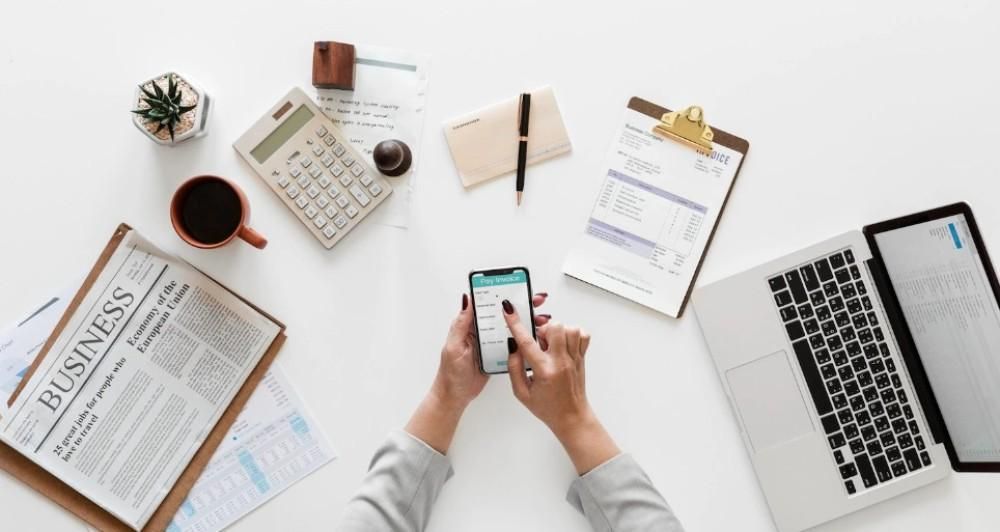The Power of Small Shifts
Every grand journey begins with a single step—and when it comes to transforming your finances, that step is habit. Not massive windfalls, not sudden luck. Habits are the quiet architects of financial freedom. They whisper, “save that,” “skip this,” and “plan ahead,” until one day, you look up and realize you’ve built something powerful: a future that feels stable and full of promise.
Important!! Financial habits are not about being perfect. They’re about being intentional . You don’t need a financial degree or a six-figure salary to begin. You just need a decision: start today .
Track It to Tame It
The first characteristic of someone with healthy finances? Awareness. You can’t control what you don’t track. Take 30 days—just one month—and write down every single expense. Use your phone, a simple Excel sheet, or a bullet journal. Watch as your spending reveals patterns like a map. Some items will shock you—those “small” coffee shop visits, forgotten subscriptions, or double streaming services.
“What gets measured, gets managed.” – Peter Drucker
This step turns the invisible into the visible. Once you know where your money goes, you can redirect it with intention.
Save First, Spend Later
If your paycheck arrives and disappears before you blink, flip the script. Make saving a non-negotiable, like brushing your teeth. Even if you start with 5% of your income, automate it so that money moves to savings before you see it in your account.
💡 Financial Characteristic: Discipline.
People who build wealth treat saving like a bill—something you must pay no matter what.
Savings aren’t just about future purchases. They’re about peace of mind. Knowing you have a growing cushion removes the low-level stress that many carry daily.
Budgeting: Your Personal Game Plan
A budget is not a financial prison—it’s your freedom blueprint. It’s how you allocate your values into numbers. Try the 50/30/20 method:
- 50% Needs – Rent, food, bills
- 30% Wants – Travel, hobbies, dinners
- 20% Future – Savings, investments, debt payoff
Add personality to your budget. Name categories like “Adventure Fund” or “Dream Move” . This emotional connection turns abstract numbers into exciting goals.
💡 Financial Characteristic: Vision.
Budgeting works best when tied to your real-life dreams, not just expenses.
Build the “Break-Glass Fund”
An emergency fund is the adult version of a superhero cape. It’s invisible but powerful. Life is unpredictable: tires blow, jobs shift, health changes. Start by saving just $500 to $1000 . Gradually build to 3–6 months of essentials.
This isn’t about fear—it’s about freedom. With a fund in place, you’ll feel more confident saying yes to opportunities and no to toxic work, bad loans, or panic decisions.
💡 Financial Characteristic: Resilience.
The ability to weather storms without falling apart.
Money Mindfulness = Magic
What do you value? Travel? Family? Freedom? Align your spending with those priorities. Before every purchase, ask:
- Does this bring joy or just a dopamine hit?
- Is it a need, a want, or a distraction?
- Will this feel like a smart choice in 30 days?
Money mindfulness doesn’t mean never spending—it means spending with soul.
💡 Financial Characteristic: Clarity.
Knowing the “why” behind your purchases is more powerful than knowing the “how much.”
Don’t Aim for Perfect—Aim for Consistent
Here’s the truth no one tells you: rich habits beat rich income. You can build a better life by sticking to small routines—saving weekly, reviewing monthly, reflecting quarterly.
If you mess up, reset. One financial slip is not a failure. It’s part of the process.
“Success is the product of daily habits—not once-in-a-lifetime transformations.” – James Clear
Important!! Your finances don’t define you, but they do reflect you . And by shifting your habits, you’re not just changing your wallet—you’re rewriting your story.

